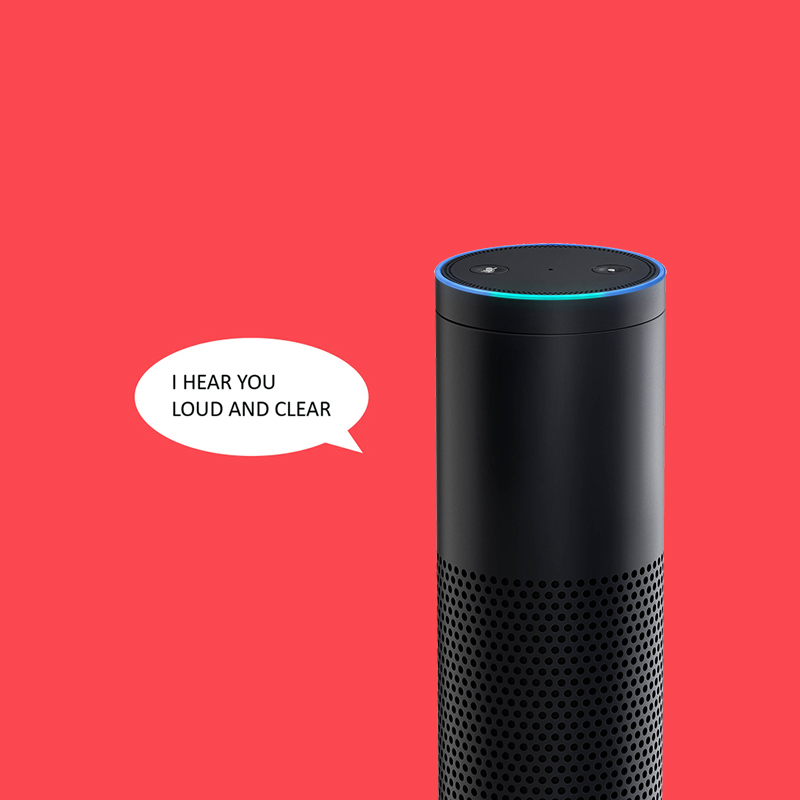
When it comes to the internet, the technology allows marketers and advertisers to do what they couldn't do when using traditional marketing.
When the former allows marketers to broadcast their message to a broader audience, the latter allows them to deliver their message by pinpointing them to only those relevant. This is possible because through the internet, people can be tracked and understood what they want.
And this time, Amazon has been found using a sneaky way of tracking its users.
And that is by listening to users' needs, through its digital assistant Alexa.
The AI-powered digital assistant from Amazon is used in devices like the Echo products.
Here, in a research paper titled "Your Echos are Heard: Tracking, Ad Profiling, and Targeting in the Amazon Smart Speaker Ecosystem," it was revealed loud and clear that Amazon, along with various advertising/tracking third parties, routinely harvest consumers’ voice data to personalize both on- and off-platform sales.
Making it disheartening, Amazon and its partners don't generally explain this in their privacy policies.
The paper’s authors which included researchers from the University of Washington, Northeastern University, UC Davis, and UC Irvine, explained that they found that "Amazon processes voice data to infer user interests," and that its ability allows marketers to have an increased of leads of more than 30-times-higher bids from advertisers.
According to the research, user data is shared with at least 41 different ad companies.
To prove their hypothesis, the researchers started generate user data by creating different users on Alexa.
Using each user, which represent one persona, the researchers started promoting specific interests, including spirituality, smart home, pets, fashion, dating, connected car, navigation, beverages, and vanilla for control.
The approach, was linking Amazon Echo to Alexa web companion app and visit Alexa skill marketplace to install skills (1-4), and then interact with the installed skills by uttering sample invocation utterances listed in the skills' description (5-8). Then, the researchers visit popular websites while logged into Amazon account and Alexa web companion app (9-11).
In step 3∗ and and 6∗, the researchers record incoming/outgoing network traffic to/from Amazon Echo and AVS Echo.
And in step 8, they record audio ads from music streaming skills, while in step 12, they record web ads on popular websites. Lastly, on step 13, they analyze recorded data to measure tracking, profiling, and ad targeting and its compliance with privacy policies.
As expected, the results’ statistical analysis showed that all personas were provided with targeted ads on the web, which helped the researchers spot "strong evidence that smart-speaker interactions are used for the purpose of targeting ads, and that this ad targeting implies significant data sharing across multiple parties."
When asked, the tech giant literally confirmed this.
Speaking to The Verge, Lauren Raemhild, a spokesperson for Amazon explained that:
The company also confirmed there are targeted ads on its smart speakers:
But for its part, the spokesperson said that the company values privacy, saying that Amazon does not share voice recordings with developers:
"We do not share our customers' personal information to third-party skills without the customer's consent."
The spokesperson also opposed the conclusion of the research, saying that:
In addition, Raemhild said that there are, in fact, targeted ads on Amazon Echos but that it is the same, just like what customers will have when they use ad-supported premium content on other channels. As for sharing voice recordings with other developers, Raemhild’s response matches what the researchers said only processed transcripts were given to the parties instead of raw audio.
This revelation shows how far companies that conduct their business on the web have huge network of partners that trade user data behind users' back, hiding behind opaque privacy policies that people don't actually read.
Amazon however, does allow users to opt out of its interest-based ads from Amazon on its Advertising Preferences Page.
For Alexa-powered devices, there are additional privacy controls managed through Settings, which could be accessed by visiting Alexa Privacy in the Alexa app or at amazon.com/alexaprivacysettings.
